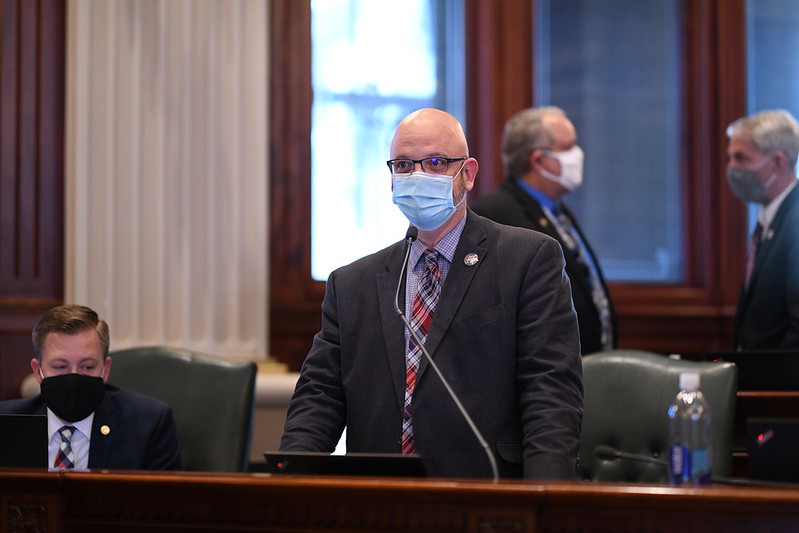The Illinois House of Representatives voted today to pass legislation supported by State Representative Jeff Keicher, R-Sycamore, to impose a 10-year term limit on legislative leaders. The legislation is House Bill 642 and applies to the positions of Speaker of the House, President of the Senate, and Minority Leader of both the House and Senate.
“In the aftermath of the Mike Madigan era, Illinois needs a clean break with the politics of the past,” Representative Keicher said. “Today’s vote makes clear our bipartisan commitment moving forward to enforce a change in leadership at least once every ten years – for both Republicans and Democrats. This will lead to more accountability in the legislative process and hopefully greater public confidence in our collective work on behalf of our constituents and local families. In January the House passed a ‘rule’ that could be changed at any time, codifying this in statue is the place we fought to have it so it doesn’t fall prey to political gamesmanship.”
House Bill 642 now advances to the State Senate for consideration where it is expected to pass. The bill was approved in the House of Representatives by a vote of 115-0-1, with only Rep. Will Davis (D-Hazel Crest) voting Present.
###
Keicher legislation on local government efficiency, taxpayer savings wins unanimous approval
The Illinois House of Representatives voted unanimously today to approve House Bill 162, bipartisan legislation introduced and sponsored by State Rep. Jeff Keicher (R-Sycamore) that would require most local taxing bodies in Illinois to review and report at least once every 10 years on ways in which they can save taxpayer money by improving efficiency or consolidating services. The bill had three Democratic co-sponsors and five Republican co-sponsors.
“Just like families do with their household budgets and job creators do with their business, our local taxing bodies should have to review their activities, processes and spending through broad buy-in and input. To seek to find ways to do more efficient work on behalf of the property taxpayer,” Rep. Keicher said. “This initiative would drastically improve public accountability on how local tax dollars are spent and make local units of government’s footprint right-sized and more efficient. For too long we have all heard about the excessive units of local government in Illinois. What we have done with this framework is allow a process for local units to evaluate if they should modify or consolidate or, in the case of a good government unit, validate their services to be most responsive to the local needs.”
House Bill 162 creates the “Decennial Committees on Local Government Consolidation & Efficiency Act”.
Under the provisions of the bill, each unit of local government (except schools, municipalities and counties) would be required to form a committee to study local efficiencies, including an analysis of whether to consolidate with another governmental unit, municipality, or county; and create a report with recommendations regarding efficiencies, increased accountability, and consolidation. The duties of the committee would include the study of the unit of local government’s governing statutes, ordinances, rules, procedures, powers, jurisdiction, shared services, intergovernmental agreements, and interrelationships with other units of local government and the State of Illinois. Each committee would be required to collect data, research, analysis, and public input; and be dissolved upon completion of its report and oral presentation of the report.
House Bill 162 now advances to the State Senate for consideration.
###
